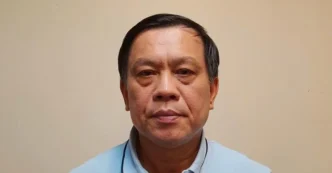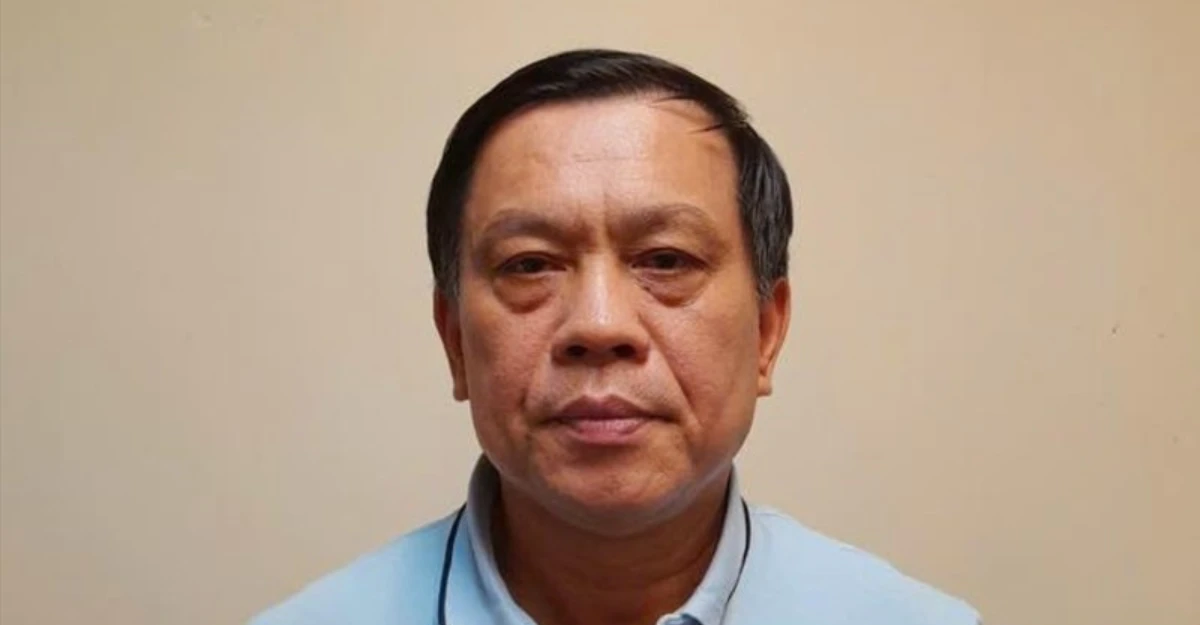In a significant development within Vietnam’s political sphere, Deputy Minister of Home Affairs Vu Chien Thang has been suspended from duty, as announced by the government on a recent date. The suspension, which has drawn considerable attention both domestically and internationally, is linked to an ongoing investigation, though specific details about the nature of the probe remain undisclosed. This move underscores Vietnam’s continued emphasis on accountability within its political ranks, raising questions about governance and transparency in one of South East Asia’s key nations.
Details of the Suspension
The Vietnamese government confirmed the suspension of Vu Chien Thang through an official statement, though the exact reasons for this action have not been publicly elaborated. According to state media outlets, the decision was made under the directive of higher authorities within the Communist Party of Vietnam (CPV), which plays a central role in the country’s political structure. The Ministry of Home Affairs, responsible for overseeing administrative reforms and civil service management, is a critical arm of the government, making the suspension of a high-ranking official particularly noteworthy.
While no formal charges have been announced, speculation abounds regarding the potential focus of the investigation. Analysts suggest it may relate to administrative oversight or policy implementation, though these remain unconfirmed theories. A government spokesperson reiterated that the process would adhere to legal and party guidelines, emphasizing that further information would be released as the investigation progresses. “The government is committed to ensuring accountability at all levels” said a spokesperson for the Ministry, declining to provide additional specifics at this stage.
Political Context and Implications
Vietnam’s political system, characterized by the dominant role of the CPV, places significant importance on maintaining internal discipline and public trust. Suspensions or investigations of high-ranking officials, while not frequent, are often seen as part of broader anti-corruption campaigns or efforts to reinforce party unity. Over the past decade, the CPV has intensified its focus on combating corruption and malfeasance within its ranks, a policy championed by General Secretary Nguyen Phu Trong, who has repeatedly emphasized the need for “clean” governance.
The suspension of a deputy minister, particularly from a key ministry like Home Affairs, could signal a deeper examination of administrative practices within the government. The Ministry plays a pivotal role in shaping policies related to local governance, civil service recruitment, and public administration reforms—areas that have been under scrutiny as Vietnam seeks to modernize its bureaucratic systems while maintaining political stability. If the investigation uncovers systemic issues, it may prompt wider reforms or policy shifts, though such outcomes remain speculative at this point.
Public reaction to the news has been mixed, with some citizens expressing support for the government’s apparent commitment to accountability, while others question the lack of transparency surrounding the case. On social media platforms, discussions have highlighted broader concerns about governance in Vietnam, with some users calling for more detailed public disclosures. “We need to know why this is happening” said one netizen on a popular Vietnamese forum, reflecting a sentiment echoed by many.
Broader Regional Perspective
Vietnam’s political developments are often closely watched by its neighbors in South East Asia, where governance and anti-corruption measures are frequent topics of regional dialogue. Countries like Thailand and Indonesia have faced their own challenges with political accountability, and Vietnam’s handling of this case could serve as a point of comparison. Within the Association of Southeast Asian Nations (ASEAN), member states often share insights on governance practices, and Vietnam’s actions may contribute to ongoing discussions about transparency and reform.
Moreover, Vietnam’s international partners, including major investors and trade allies like the United States and the European Union, may take note of this development as an indicator of the country’s commitment to institutional integrity. Foreign direct investment in Vietnam has grown significantly in recent years, driven by its strategic location and competitive labor market. Any perception of political instability or administrative irregularity could influence investor confidence, though experts caution against overreacting to a single incident without full context.
Historical Precedents and Party Discipline
The suspension of Vu Chien Thang is not an isolated event in Vietnam’s recent political history. Over the past few years, several high-profile officials have faced investigations or disciplinary actions as part of the CPV’s anti-corruption drive. Notable cases include the removal of officials implicated in mismanagement or financial irregularities, often tied to large-scale infrastructure projects or state-owned enterprises. These actions are typically framed as efforts to strengthen the party’s legitimacy and maintain public trust, particularly in a nation where the CPV’s authority is central to political life.
Historically, the Ministry of Home Affairs has been at the forefront of implementing reforms aimed at improving governance efficiency. Past initiatives have focused on decentralizing certain administrative functions to local levels while ensuring alignment with national policies. Any potential issues within the Ministry could therefore have far-reaching implications for how Vietnam balances central control with local autonomy—a delicate dynamic in a rapidly developing economy.
Analysts point out that the CPV often uses such investigations to send a message about accountability, both to its members and to the public. “This is as much about internal discipline as it is about public perception” said a Hanoi-based political commentator, who requested anonymity due to the sensitivity of the topic. “The party wants to show that no one is above scrutiny, regardless of rank.”
Potential Outcomes and Speculation
As the investigation into Vu Chien Thang continues, several possible outcomes loom on the horizon. If the probe uncovers evidence of wrongdoing, formal charges could follow, potentially leading to further disciplinary measures or legal consequences. Alternatively, the suspension could be a precautionary step, with the deputy minister reinstated if no substantial issues are found. Given the lack of detailed information at this stage, these scenarios remain speculative, and observers caution against drawing premature conclusions.
What is clear, however, is that the case has already sparked a broader conversation about governance in Vietnam. Civil society groups and independent commentators have called for greater transparency in how such investigations are conducted, arguing that public trust hinges on clear communication from the government. While Vietnam’s political system prioritizes stability and party cohesion, balancing these principles with public accountability remains an ongoing challenge.
Looking Ahead
As Vietnam navigates this latest political development, the suspension of Deputy Minister Vu Chien Thang serves as a reminder of the complexities inherent in governing a nation of over 100 million people. The outcome of the investigation, once revealed, will likely shape perceptions of the CPV’s commitment to integrity and reform, both at home and abroad. For now, the public and international observers alike await further clarity on the matter, with many hoping for a resolution that reinforces confidence in Vietnam’s political institutions.
In the streets of Ha Noi, where discussions of politics often unfold over cups of strong Vietnamese coffee, the question on many minds is how this case will influence the country’s trajectory. As one resident put it, “We want leaders we can trust to build our future.” Whether this investigation marks a step toward that goal remains to be seen.















